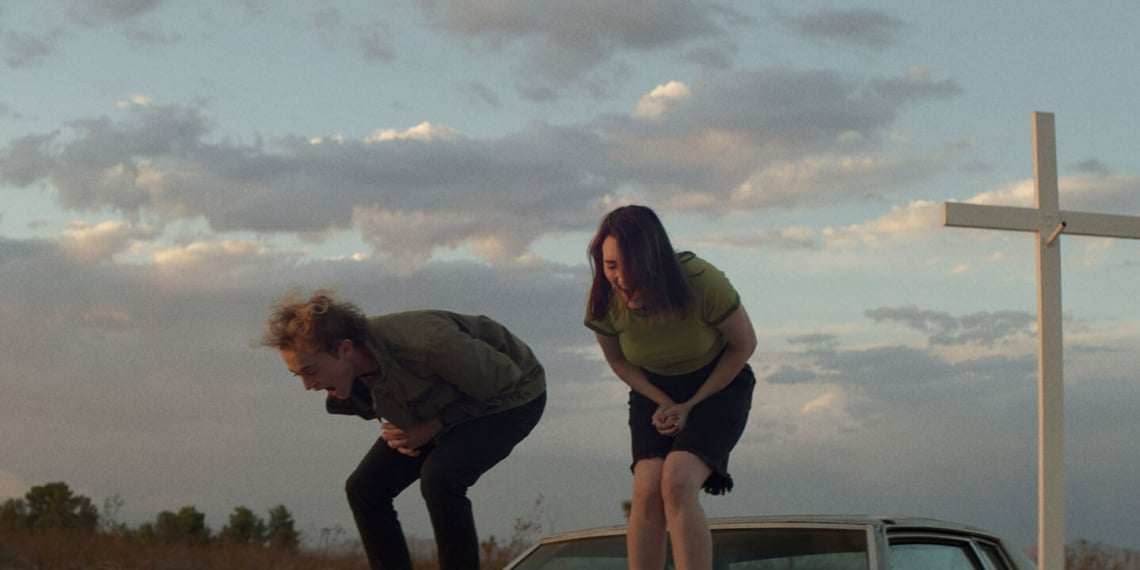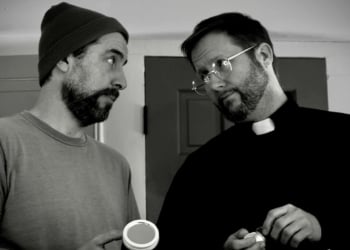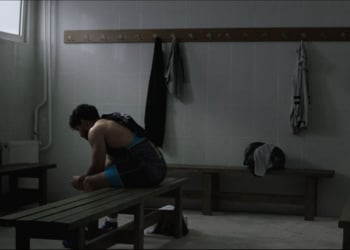Weston Porter’s Line of Fire works as well as it does because of its cast. A story of two teenagers stuck in the vortex of small town stagnancy, abusive parents, and hypermasculine violence, it sees them negotiate with being forced to conform or die. So pervasive and inescapable is the web that even a bid for freedom must come from the same cesspool.
When the story opens, Oliver (Max Mattern) is already struggling to death, unable to get away from his brother (Michael Kishon) and father (Blake Robbins) who alternately have him in a chokehold. The only permissible way out is to return the violence. Mattern’s face holds an ambiguous mix of weariness and naivete; the calluses of experience disappear into the softness of a boy still discovering adulthood, whose idea of romantic love is yet to be split from the weave of friendship. He takes the explosive scene and pours immense vulnerability into it. The result is almost unbearable.
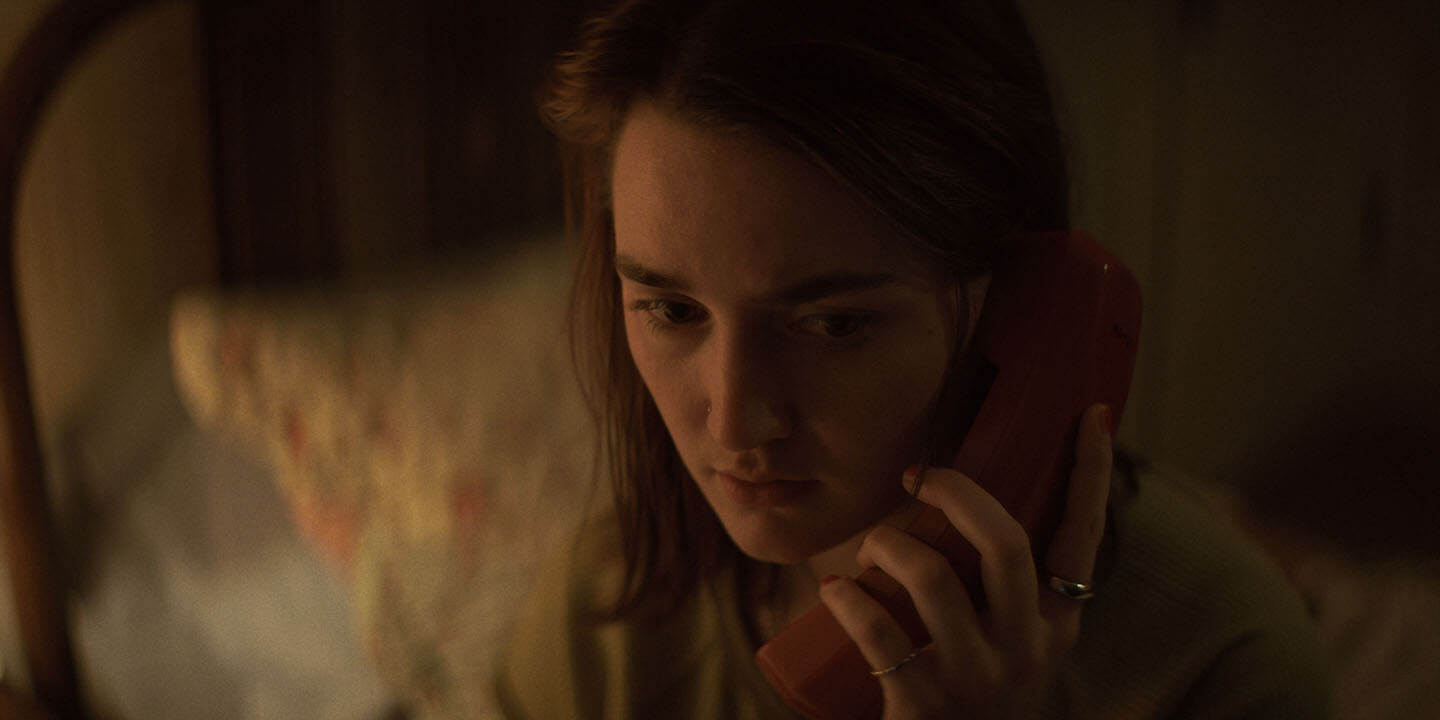
Elsewhere, Shelley (Sidney Flanigan, of Never Rarely Sometimes Always fame) lives within the suffocating confines of a comatose home under the rule of its festering matriarch (Oscar nominee Cathy Moriarty), who shifts with the caprice of a ghost between gentleness and malevolence. The sun never seems to seep into the rotting wood of their house. Meanwhile the shadow of a renunciant father (voiced by Michael J. Gwynn) hangs heavy. The misery of it allows the same figure, still loved by the daughter, to be transformed into a disgusted charge—you’re just like your father—while a phone call confirms to the audience that mother and daughter are the discarded waste of the man’s clean new life.
Shelley’s anguish looks different from Oliver. Less tormented somehow, more angry, more ready to pick a fight. So she does. Hatching a plan of escape while the two are still catching their breath from the latest bout of confrontation, Shelley proposes radical change, reaching for a lot more than their town is prepared to cede to two teenagers of everyday misfortune. Like the opening scene, like every other deliberately placed shot of boys and toy guns on TV, their way out asks for violence.
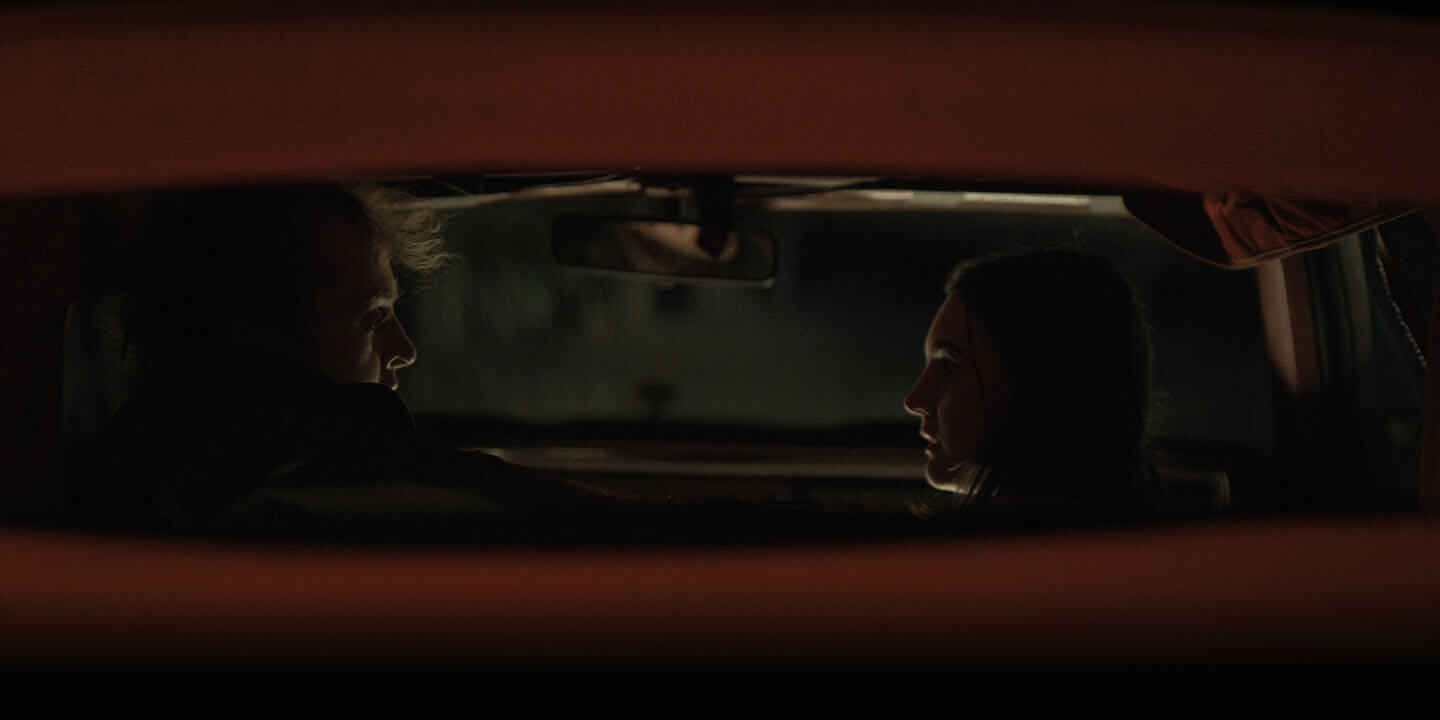
Amid one remarkable scene after another, Oliver’s farewell scene with his brother (though the latter does not know it to be such yet) stands out for its moving mix of shame and tenderness. Oliver, catching Jacob completely vulnerable, responds with more warmth than their home has ever stood witness to. Kishon is impressive in his brief role. The moment makes the following violence colder, a level-headed execution whose arbiter has the strength of tradition behind him.
The dusty landscape, its one general store, the music, and especially the shot of Oliver running out of the doorway reinforce the notion of a Western. But there is no glory to be had; Oliver, with his gentleness, is predestined to lose within the rotting framework.
Line of Fire is a beautifully shot, well written tragedy. When Shelley wonders what her life could have been had she been born somewhere else, the answer is something inherently better. She and Oliver are caught in the wrong place and the wrong genre.
Watch Line of Fire Short Film Trailer
Line of Fire: A Tragedy of Teen Rebellion Against Brutal Childhoods
-
Direction
-
Cinematography
-
Screenplay
-
Editing
-
Music


